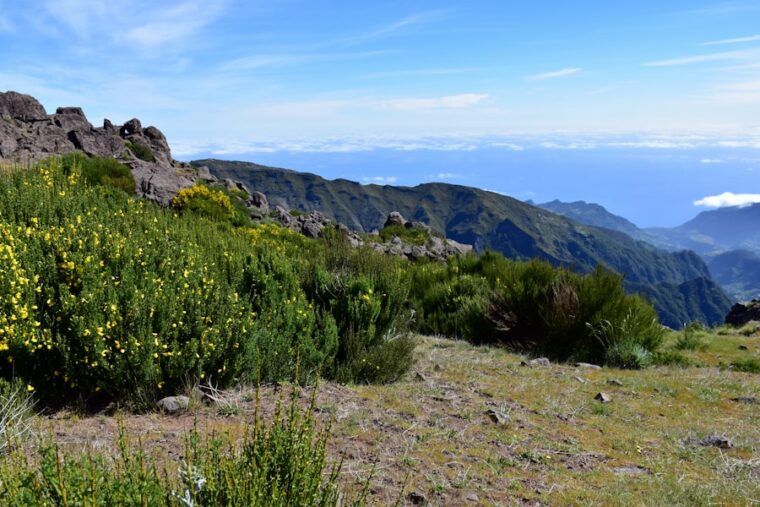The Faroe Islands, a self-governing archipelago, is a hidden gem in the North Atlantic Ocean. With its stunning landscapes, rich cultural heritage, and unique traditions, the Faroe Islands offer a truly immersive experience for visitors. The islands are known for their dramatic cliffs, picturesque villages, and abundant wildlife, making it a paradise for nature enthusiasts and adventure seekers. The Faroese people are proud of their distinct identity and have preserved their traditions and customs for centuries, making it a fascinating destination for those interested in exploring traditional cultures.
The Faroe Islands are a haven for outdoor enthusiasts, with opportunities for hiking, birdwatching, and fishing. The rugged terrain and breathtaking scenery make it a popular destination for photographers and nature lovers. The islands are also home to a rich cultural heritage, with a strong emphasis on traditional arts, music, and folklore. Visitors can immerse themselves in the local way of life by participating in traditional activities such as sheep herding, knitting, and storytelling. With its unique blend of natural beauty and cultural richness, the Faroe Islands offer a truly unforgettable experience for travelers seeking an authentic and immersive cultural experience.
Traditional Cuisine and Culinary Delights
The Faroese cuisine is a reflection of the islands’ rugged landscape and maritime heritage. Traditional dishes often feature locally sourced ingredients such as fish, lamb, and seabirds, reflecting the islanders’ reliance on the sea and land for sustenance. One of the most iconic dishes is ræst kjøt, which is lamb that has been hung to dry for several months, resulting in a rich and intense flavor. Another popular dish is skerpikjøt, which is wind-dried mutton that has been aged for several months, giving it a unique and savory taste. Seafood also plays a prominent role in Faroese cuisine, with dishes such as salted fish and fish soup being staples in the local diet.
In addition to its savory dishes, the Faroe Islands are also known for their unique sweet treats. Røst Klenning is a traditional pastry made with layers of buttery dough and sugar, creating a deliciously sweet and flaky dessert. Another popular sweet treat is rye bread, which is often served with butter and cheese, making it a simple yet satisfying snack. Visitors to the Faroe Islands can indulge in these culinary delights at local restaurants and cafes, where they can savor the flavors of traditional Faroese cuisine while enjoying stunning views of the surrounding landscape.
Folklore and Mythology
The Faroe Islands are steeped in folklore and mythology, with a rich tradition of storytelling and oral history. The islands are home to a diverse array of mythical creatures and legends, which have been passed down through generations. One of the most famous legends is that of the Huldufólk, or hidden people, who are said to inhabit the rocky cliffs and hidden valleys of the islands. These mystical beings are believed to be invisible to humans unless they choose to reveal themselves, and are said to possess magical powers and abilities.
In addition to the Huldufólk, the Faroese folklore is also filled with tales of sea monsters, giants, and other supernatural beings. These stories have been used to explain natural phenomena and to teach moral lessons, serving as a way for the islanders to connect with their environment and understand the world around them. Visitors to the Faroe Islands can immerse themselves in this rich tradition by participating in storytelling sessions and folklore tours, where they can learn about the mythical creatures and legends that have shaped the cultural identity of the islands.
Traditional Music and Dance
Music and dance are integral parts of Faroese culture, with a strong tradition of folk music and traditional dance. The islands are home to a vibrant music scene, with a wide variety of traditional instruments such as the fiddle, accordion, and drum being used to create lively and spirited tunes. Traditional Faroese music often features haunting melodies and intricate rhythms, reflecting the islanders’ connection to their natural surroundings and maritime heritage.
In addition to music, traditional dance plays a prominent role in Faroese culture, with lively folk dances being performed at festivals and celebrations throughout the year. These dances often involve intricate footwork and lively movements, reflecting the islanders’ joyous spirit and sense of community. Visitors to the Faroe Islands can experience traditional music and dance by attending local performances and participating in dance workshops, where they can learn about the history and significance of these art forms in Faroese culture.
Handicrafts and Artisanal Traditions
The Faroe Islands have a long tradition of handicrafts and artisanal traditions, with local artisans creating a wide variety of handmade goods using traditional techniques. One of the most iconic handicrafts is Faroese knitting, which has been practiced for centuries and is known for its intricate patterns and high-quality wool. The islands are also known for their unique wooden boat building tradition, with skilled craftsmen using traditional methods to construct seaworthy vessels that are still used by fishermen today.
In addition to knitting and boat building, the Faroe Islands are also known for their distinctive pottery, weaving, and carving traditions. Local artisans create beautiful ceramics, textiles, and wooden carvings that reflect the islanders’ connection to their natural surroundings and maritime heritage. Visitors to the Faroe Islands can explore these artisanal traditions by visiting local workshops and studios, where they can watch skilled craftsmen at work and purchase handmade goods as souvenirs of their visit.
Festivals and Celebrations
The Faroe Islands are home to a wide variety of festivals and celebrations that showcase the islanders’ rich cultural heritage and traditions. One of the most famous festivals is Ólavsøka, which takes place in the capital city of Tórshavn and celebrates the national holiday of the Faroe Islands. The festival features traditional music and dance performances, as well as sporting events, parades, and cultural exhibitions that highlight the islanders’ unique way of life.
In addition to Ólavsøka, the Faroe Islands are also known for their vibrant music festivals, where local musicians and international artists come together to celebrate traditional folk music and contemporary genres. These festivals often take place in stunning outdoor settings, allowing visitors to enjoy live music performances against the backdrop of the islands’ breathtaking landscapes. Visitors to the Faroe Islands can immerse themselves in these festive celebrations by attending local events and participating in traditional activities such as folk dancing, storytelling, and handicraft demonstrations.
Preservation of Cultural Heritage
The Faroese people are deeply committed to preserving their cultural heritage and traditions for future generations. Efforts have been made to safeguard traditional practices such as knitting, boat building, storytelling, and folk music through educational programs, workshops, and cultural initiatives. Local museums and cultural institutions also play a vital role in preserving the islands’ heritage by showcasing artifacts, artworks, and historical documents that reflect the islanders’ way of life.
In addition to these efforts, the Faroe Islands have also been recognized for their commitment to sustainable tourism practices that prioritize the protection of natural landscapes and cultural sites. Visitors are encouraged to explore the islands responsibly by participating in eco-friendly activities such as hiking, birdwatching, and wildlife tours that promote conservation efforts. By embracing sustainable tourism practices and preserving their cultural heritage, the Faroese people are ensuring that future generations will be able to experience the unique traditions and customs that make the islands so special.
In conclusion, the Faroe Islands offer a truly immersive cultural experience for visitors seeking to explore traditional arts, music, folklore, cuisine, handicrafts, festivals, and celebrations. With its stunning landscapes, rich cultural heritage, and commitment to preserving its traditions for future generations, the Faroe Islands provide an unforgettable journey into a world of timeless beauty and enduring traditions. Whether it’s savoring traditional cuisine or participating in lively folk dances at local festivals, visitors to the Faroe Islands can immerse themselves in a vibrant culture that has been shaped by centuries of history and tradition.


